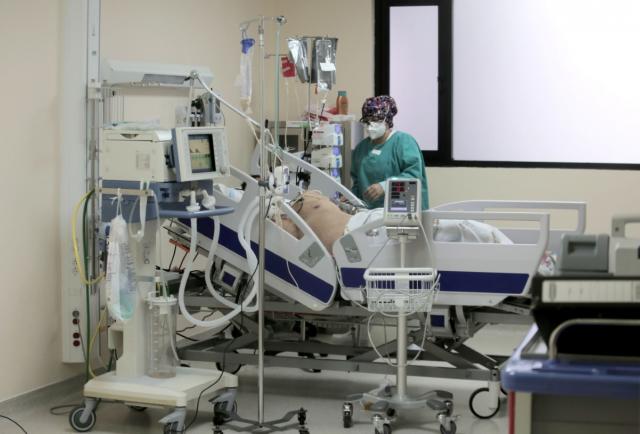La COVID-19 pandemic not only showed a wave of infections and death in the country. Behind him cases of corruption committed since March.
The prosecution detailed that in 10 provinces these events were detected, although it would be extended to another 12 and where there were more was in Guayas (8), Los Ríos (8) and Pichincha (6).
In the first days of April, it was reported that masks were purchased with a surcharge at the Teodoro Maldonado Carbo hospital, in Guayaquil. From 4 dollars it went to 12.
–
In such research Hospital names jumped, both from the Ministry of Health and the Ecuadorian Institute of Social Security (see background).
This is why a Task force to investigate cases that, until November, were of embezzlement (21), illicit association (1), bribery (3), concussion (2), organized crime (2), influence peddling (3) and failure to comply with decisions of competent authorities (1).
Until November, Prosecutor’s office Opened 33 processes, 28 of which are in a prior investigation and five in fiscal investigation. Among the names that gained relevance during these proceedings are Daniel Salcedo, who was sentenced to four years for procedural fraud and who was investigated for cases of corruption in hospitals in Guayaquil.
By May, the name of the Los Ceibos hospital appeared, where covers for corpses were also bought with surcharges. Here comes the name of Daniel Salcedo.
–
His personal trainer Abraham Muñoz, who was singled out for selling, also entered the list. medicines donated to IESS to combat the COVID and Noé, Salcedo’s brother. And around them appeared political figures such as Abdalá Bucaram Ortiz, former president of the Republic, and his sons Dalo and Jacobo.
The people suffered
So far, the economic damagesTotals have not been calculated due to the wide range of corruption cases. What was clear is that this directly harmed the care of patients in the pandemic.
Ángel Jaramillo was one of the affected during the health crisis. “When I went to a hospital they said they didn’t even have oxygen. There were people lying on the floor and did not want To die So”. Jaramillo, 46, took refuge in his home in Quito for a month and his wife, who is a nurse, saved his life. “I did not receive a single aid from the State,” he assures, since all the medication he paid for it out of pocket.
In this context, Abraham Muñoz, Daniel Salcedo’s coach, jumps out as the one involved in selling donated medicines to the IESS.
–
Something similar was experienced by Juan Manuel López, cultural manager and communicator of the capital. While the wake of corruption reached its highest points, he recovered at home with his wife and children.
“We were afraid to go to hospitals because we ran the risk of dying.” With the help of a private doctor, he had no choice but to buy medicine and save himself without the help of the health system.
Catastrophic illnesses, also in debt
But not only patients from COVID were the ones affected by this problem. People with catastrophic illnesses they also suffered from corruption and the lack of medications.
One of them was Patricia Angulo, who suffers breast cancer for five years. The chemo and radiotherapy complements them with pills.
Before the pandemic, he says, he got them in the hospitals of the IESS in Quito, but during the lockdown bought them in pharmacy at $ 45.
The news broke that medications expired in IESS hospitals throughout the country, an estimated loss of 5.3 million dollars.
–
Gustavo Dávila, general coordinator of the National Alliance for Health (ANS), blames the corrupt handling of Health for the suffering of sick.
“While it has denounced people for this type of act and expired medications are thrown awayThere are people who cry out for this medicine and for justice ”. And the consequence of all this, according to Dávila, is dire.
The ANS comprises 30 organizations representing sick of various pathologies and estimates that 40 percent of that group has stopped taking their medicines in the country. Even because of this, Dávila is sure that many they passed away.
– .


